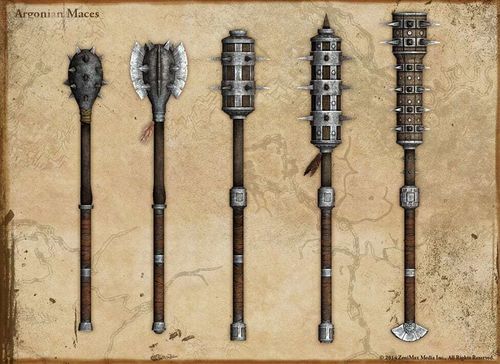General:Creating ESO: Crafting Facts
The original article was posted here on March 19, 2014.
The Elder Scrolls Online offers you choices at every turn, and the crafting system is no exception. Whether you want to focus on becoming a master crafter or you just want to have a few helpful buffs as you adventure, we have just the right fit for you. Because the system is so diverse, we wanted to share some things you might not know to help get you excited to create your own items, food, potions, and more in ESO.
One thing you'll notice about the crafting in ESO is that the different skills offer varying levels of complexity. We want you to be able to get something out of crafting even if you aren't making it your character's focus. And, conversely, if you want to invest a lot of time and effort, we want the rewards to be worthwhile. To that end, each craft is different. Provisioners simply find recipes and ingredients throughout the world, and they can cook or create drinks as long as they have a recipe and the corresponding ingredients. Enchanters and alchemists will need to experiment a little more, discovering the traits of ingredients or the meanings of runestones. Finally, smiths (the most complex) can create weapons and armor, learn different racial styles, discover secret crafting stations that impart set bonuses, deconstruct items to learn new traits, improve item quality with boosters only they can obtain, and make tons of decisions about the items they craft. No matter how invested you are in crafting, there's something for you.
We want you to have the freedom to pursue one or all of the crafting skills, but we still want you to have interesting character development choices. All of the crafting skills are part of the overall skill system, so you'll need to consider your options carefully when you spend a skill point. Should you put one more point into blacksmithing, or do you really want to learn a new two-handed weapon ability? While there are tons of skill points to earn, you'll still have important choices to make. Crafting is useful from your first steps in Tamriel on, so it's worth spending some time and points to level at least one skill.
You'll notice that no two crafters are quite the same, especially smiths. Because you choose how many points and how much time you want to invest in a crafting skill, your character's level doesn't necessarily determine how "good" you are at crafting a particular type of item. Take a smith's item traits, for instance. To learn one, you need to deconstruct an item with a trait for research. When research is completed, you can make that particular item with that trait on it. This takes longer as you research more traits for that type of item, so you'll need to find a smith with the trait for the item you want—and that may not always be the highest-level crafter! It would take an incredibly long time to learn every trait for every weapon and armor piece.
Something else we want to ensure is that crafting is more than just gathering up your materials, selecting "Create All," and walking away for a while. You'll want to pay attention to each item you produce. Whether you're an alchemist experimenting to find the perfect potion to enhance your skills, an enchanter unravelling the rune language, or a smith in search of the perfect set of Orcish armor, you'll be making choices every time you craft.
With crafted items, you'll be more prepared for battle: you'll have great food and drink buffs, potions to give you an edge, and improved armor and weapons with traits and enchantments that suit your build in exactly the style you want. There's a lot more, so we'll leave you with a list of facts you may not have known—you'll have to discover the rest on your own!
Quick Facts:[edit]
- Several crafting disciplines allow you to contract a hireling by spending points in a skill. That hireling will send you a steady supply of useful materials and updates on his or her adventures.
- Anyone can harvest materials, but only those that invest points into crafting skills will learn how to get the most benefit from resource refinements and item deconstruction.
- Crafters can learn how to spot resources in the world at great distances that would be overlooked by those with less training.
- There are secret crafting stations hidden throughout the world. Rumor has it that powerful set bonuses can only be imparted to items when they are crafted in those locations.
- There are 15 different racial styles for smiths to learn! Racial styles can be learned from special books found through exploring and adventuring.
- With the right tempers, tannins, or resins, a smith can improve an item all the way to legendary quality. Smiths who spend points in their skills will have a better chance to improve gear with these boosters than those who don't.
- Make sure to talk to NPCs. Some may have Provisioning recipes to share.
- Alchemists can discover the first of four properties of an ingredient by sampling it. The others must be discovered through experimentation while creating potions.
- Using the right ingredients, an alchemist can make extremely powerful potions with multiple beneficial effects. We think everyone who wants to do battle in Cyrodiil will want to know a good alchemist.
- The language developed for Enchanting is based on syllables that have their own meanings. Each runestone has the symbol for its syllable etched on it, and each glyph (combination of three runestones) has its own pronunciation.

